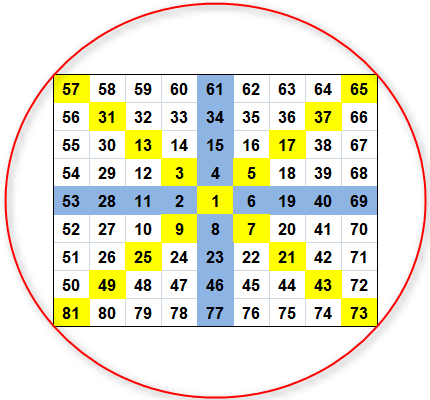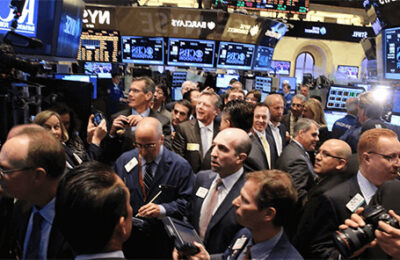
As with diversified passive funds, these niche portfolio funds are generally made up of the same stocks as those used to calculate their reference indexes. In contrast to buy-and-hold investors, active traders try to make a profit on short-term fluctuations in a stock’s price. While investors may focus heavily on a company’s fundamental and long-term prospects, traders tend to rely more on news events and technical analysis to inform their decisions. When people talk about investing in stocks, they’re usually referring to common stock. These kinds of stocks give you the opportunity to join in the success of public companies, and as such, they’re an investment that can really grow your portfolio. This is a risky strategy, however, because you must still re-buy the shares and return them to your firm.

You can also set up recurring deposits to automate your investments going forward. Bitcoin,Ethereum and other cryptocurrencies are traded on specialized crypto exchanges. Raw materials like steel, coal and oil are traded on commodities markets. There are around 50 major commodity markets worldwide that facilitate trade in a wide range of commodities.
Bankrate logo
Investing in stock offers no guarantee that you will make money, and many investors lose money instead. The stock market is a constellation of exchanges where securities like stocks and bonds are bought and sold. If more investors are buying the stock than selling it, the demand for that stock goes up and the value tends to increase. This often results when investors believe the value of the company’s stock will increase as a result of strong financial performance or other market factors. Conversely, when investors believe a stock will perform poorly, they’ll sell it, which floods the market with supply and decreases demand.
When investors buy this stock, they contribute funds to the company that helps them grow. In return, some of those investors now have the right to vote in shareholder meetings, receive announced dividends, and sell the stock to other investors. Following an IPO, the stock exchange serves as a trading platform for buying and selling the outstanding shares.
They are contracts — https://forex-world.net/ on the fluctuation of underlying assets — rather than ownership of the asset itself. Is a unit of ownership in a company — If you own a stock, that makes you a shareholder, meaning that you may be eligible to receive dividends if the company succeeds and decides to pay them out. A dividend is a sum of money paid regularly by a company to its shareholders out of its profits .

Whichever way you choose, pick the investing style that works for you and start building your wealth. Investing in stocks is a great way to build wealth by harnessing the power of growing companies. Getting started can feel daunting for many beginners looking to get into the stock market despite the potential long-term gains, but you can start buying stock in minutes.
Stock Volatility Risk
This information may be different than what you see when you visit a financial institution, service provider or specific product’s site. All financial products, shopping products and services are presented without warranty. When evaluating offers, please review the financial institution’s Terms and Conditions. If you find discrepancies with your credit score or information from your credit report, please contact TransUnion® directly. The scoring formula for online brokers and robo-advisors takes into account over 15 factors, including account fees and minimums, investment choices, customer support and mobile app capabilities. Average annual stock market return is 10%; that average falls to between 7% and 8% after adjusting for inflation.
Interest rate risk, in this context, simply refers to the challenges that a rising interest rate causes for businesses that need financing. As their costs go up with interest rate increases, it becomes harder for them to stay in business. Frequently, events in the economy or the business environment can affect an entire industry.
For some time after the crash, trading in stock exchanges worldwide was halted, since the exchange computers did not perform well owing to enormous quantity of trades being received at one time. This halt in trading allowed the Federal Reserve System and central banks of other countries to take measures to control the spreading of worldwide financial crisis. In the United States the SEC introduced several new measures of control into the stock market in an attempt to prevent a re-occurrence of the events of Black Monday.
By owning a share or multiple shares, investors may receive returns through capital appreciation if the stock’s price rises or from dividend payouts. They also gain the ability to influence the company through their votes as a shareholder. It is a share of ownership in a company, which entitles the owner, also known as a shareholder, to own part of a company’s assets and a percentage of its profits if the stock pays a dividend. They can be considered a relatively risky investment, because they can potentially lose all of their value. However, they can also potentially increase in value over time.

If you’re managing your own portfolio, you can also decide to invest actively or passively. The key difference between the two is that you determine how long you want to invest. Passive investors generally take a long-term perspective, while active investors often trade more frequently.
Investing in Stocks
Hybrid https://forexarticles.net/ are rare but have been used in the past by companies as a way of sharing profits with their shareholders. If a company declares a stock dividend of 5% and you hold 100 shares of that company, you’d receive five additional shares of stock, bringing your holdings to 105 shares. However, the value of each outstanding share would decrease by 5%, making the value of your shares the same. All investments involve the risk of loss and the past performance of a security or a financial product does not guarantee future results or returns.
What happens when you buy a stock?
When you buy a share of stock on the stock market, you are not buying it from the company, you are buying it from an existing shareholder. What happens when you sell a stock? You do not sell your shares back to the company, but instead, sell them to another investor on the exchange.
Millions of people have used our financial advice through 22 books published by Ramsey Press, as well as two syndicated radio shows and 10 podcasts, which have over 17 million weekly listeners. Get real-time trade analysis and focused support from investing professionals. Political or economic events in a foreign company’s home country could potentially harm your investment.
While https://bigbostrade.com/ them isn’t without risk, investors use stocks as one of the core tools to grow their savings and plan for long-term financial goals like retirement and educational savings. But be aware that stock prices also go down, and sometimes lose all of their value and become worthless. Common stock and preferred stock are among the most common varieties, and some companies have different classes of stock. These different types of stock determine voting rights, dividend payments, and your rights for recouping your investment if the company goes into bankruptcy. During an initial public offering, the company and its advisors disclose how many shares of stock will be issued and set an IPO price.

Listed companies have greater visibility in the marketplace; analyst coverage and demand from institutional investors can drive up the share price. A trade transaction occurs either when a buyer accepts the asking price or a seller takes the bid price. If buyers outnumber sellers, they may be willing to raise their bids to acquire the stock. Sellers will, therefore, ask higher prices for it, ratcheting the price up. If sellers outnumber buyers, they may be willing to accept lower offers for the stock, while buyers will also lower their bids, effectively forcing the price down.
Most systems include categories like technology, health care, and energy. Larger companies tend to be more stable than smaller companies, but they also have less room for growth. Stocks are also referred to as equities because they represent an ownership stake in a company. Virtual Assistant is Fidelity’s automated natural language search engine to help you find information on the Fidelity.com site. As with any search engine, we ask that you not input personal or account information. Information that you input is not stored or reviewed for any purpose other than to provide search results.
Owning a variety of different stocks can help investors enjoy gains in thriving sectors while offsetting losses in others. For example, say a company has positive earnings for the quarter and issues a $0.42 preferred stock dividend. If you own 100 shares of the company’s preferred stock, you’ll receive a cash dividend of $42. The stock market consists of exchanges, such as the New York Stock Exchange and the NASDAQ, where stocks are listed. Buyers and sellers come to the stock market to buy and sell shares of stock in companies, which is facilitated by a brokerage firm.
Penny stocks are often issued by small companies called microcaps. Microcaps are companies with market capitalization less than $250 or $300 million. A stock option is a contract between two parties, like a company and an employee, that gives the owner of the option the right, but not the obligation, to purchase or sell stocks at an agreed-upon price.
How to buy stocks for beginners?
- Select an online stockbroker. The easiest way to buy stocks is through an online stockbroker.
- Research the stocks you want to buy.
- Decide how many shares to buy.
- Choose your stock order type.
- Optimize your stock portfolio.
For this reason, ETFs may be better suited for a buy-and-hold investor or someone who is buying a large number of shares at one time, rather than for an investor who uses a systematic investment program. Diversification — An ETF may be a good way to add diversification to your portfolio. Buying shares of a technology sector ETF, for example, could potentially be less risky than purchasing shares of one technology stock — an ETF may own shares of many different technology companies.
If you call an investment house like Merrill Lynch, Charles Schwab or Morgan Stanley, they’ll connect you to a stockbroker who can make your trades for a fee. Now that you have an understanding of the stock market, let’s explore how it works. The idea is that stock exchanges operate much like auction houses, where buyers and sellers can make trades and negotiate prices for stocks. A common myth about the stock market is that it’s determined by the U.S. economy. The fact is, the stock market can be affected by the economy and even contribute to it.
- You may also hear stocks referred to as equities or equity securities.
- As the owner of the pizza restaurant, you can set the initial price of the company, as well as the total number of shares of stock you want to sell.
- The returns are often lower, even over the long term, and are less volatile in day-to-day dips and spikes.
- Most stocks are traded on exchanges such as the New York Stock Exchange or the NASDAQ.
The stock market provides an option to purchase, sell and trade stocks as long as the markets are open . Essentially, stocks are a way you can own a share of a public company. Tax efficiency — ETFs may be more tax efficient than some traditional mutual funds. A mutual fund manager may trade stocks to satisfy investor redemptions or to pursue the fund’s objectives.
It doesn’t mean that every stock posted that kind of return — some posted much less or even failed completely. Dividends are payments made to shareholders out of the company’s revenue, and they’re typically paid quarterly. When you buy the stock of a company, you’re effectively buying an ownership share in that company. Stocks are an investment that means you own a share in the company that issued the stock. A stock is a type of financial security that represents the ownership, or equity interest, of a fraction of a corporation.